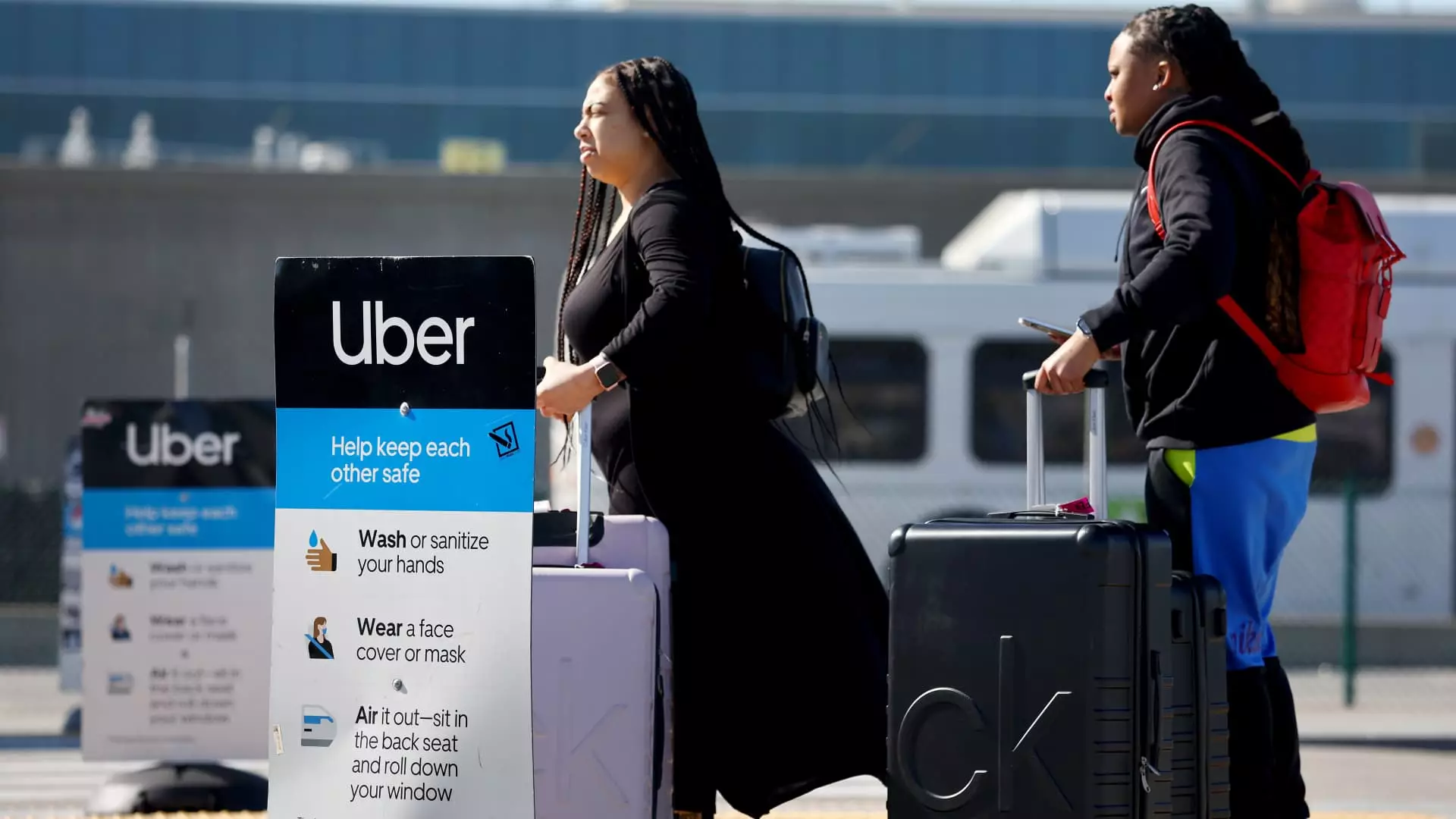In a bold move set to deepen its customer loyalty strategy, Delta Air Lines will begin a partnership with Uber, abandoning its prior alliance with Lyft. This significant shift, disclosed recently, highlights Delta’s adaptations to the evolving travel landscape as it seeks to enhance the rewards offered to its SkyMiles members. With the rising competition among airlines and ride-hailing services, this new relationship promises to provide Delta’s frequent fliers with attractive opportunities to earn valuable miles toward their next adventures.
With the planned integration beginning this spring, Delta SkyMiles members linking their accounts will be eligible for considerable mileage benefits across different Uber services. Passengers utilizing UberX for airport rides will earn one mile for every dollar spent. Meanwhile, opting for higher-end services like Uber Comfort and Uber Black will yield two miles per dollar, and three miles per dollar on Uber Reserve trips. Moreover, for those looking to fulfill their hunger through Uber Eats, purchases exceeding $40 will be rewarded with an additional mile for every dollar spent. This tiered system is designed to not only incentivize more travel but also to make the experience more valuable for frequent flyers.
Delta’s partnership with Uber is part of a broader trend among airlines to maximize their frequent flyer programs. Companies like Delta have recognized the financial potential of these loyalty programs, which have historically generated billions in revenue. Aligning itself with market leaders like Uber allows Delta to provide enhanced benefits while improving overall travel efficiency for its customers. Existing partnerships with brands such as Starbucks and Hertz further exemplify Delta’s commitment to diversifying its loyalty rewards, creating multiple avenues for customers to engage with the airline beyond traditional flight routes.
The decision to part ways with Lyft raises questions about the rationale behind this shift. Delta has not publicly addressed the reasons for this transition; however, insights reveal a possible influence from its credit card partner, American Express, which offers incentives related to Uber services. While Lyft celebrates its past partnership with Delta, both companies recognize that aligning with major brands can foster loyalty among their respective customer bases. Lyft’s engagements with various enterprises, including Alaska Airlines and Hilton, demonstrate an ongoing effort to broaden its influence even as it concludes its relationship with Delta.
In comparing user engagement, Uber’s metrics outshine those of Lyft considerably. As of the end of September, Uber boasted 161 million active users versus Lyft’s 24.4 million. This gap, coupled with Uber’s superior ride booking statistics—over 2.8 billion rides in one quarter—indicates a strong market presence that Delta aims to leverage through this new partnership. As they coalesce their operations at significant events like the CES tech show in Las Vegas, Delta and Uber appear keen to innovate and enhance customer experiences jointly.
Delta is not merely resting on its laurels with this new partnership; the airline is also embracing advanced technologies, such as the planned introduction of an artificial intelligence-driven assistant within its app. As travel resumes in greater numbers post-pandemic, Delta appears committed to integrating technology that streamlines the travel experience while also upgrading in-flight entertainment systems. These initiatives signal a forward-thinking airline that aims to utilize technology in enhancing both customer interactions and overall brand loyalty.
As the airline industry continues to adapt to changing consumer preferences, Delta Air Lines’ alliance with Uber signifies a strategic shift that promises to redefine the travel experience for its SkyMiles members. By offering enhanced rewards and harnessing the power of technology, Delta sets itself up for a promising future where frequent travelers can benefit significantly. This alliance not only serves to retain existing customers but also aims to attract new ones drawn by the allure of maximizing their travel experiences through innovative partnerships. As Delta’s earnings report approaches, the impact of this shift will become even more apparent, allowing stakeholders to assess the true potential of this dynamic collaboration.

